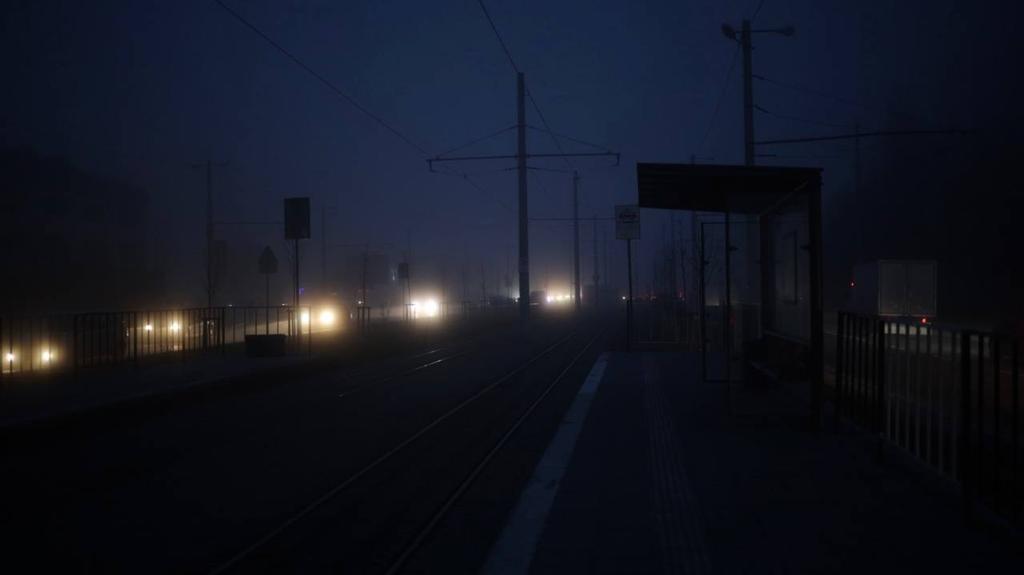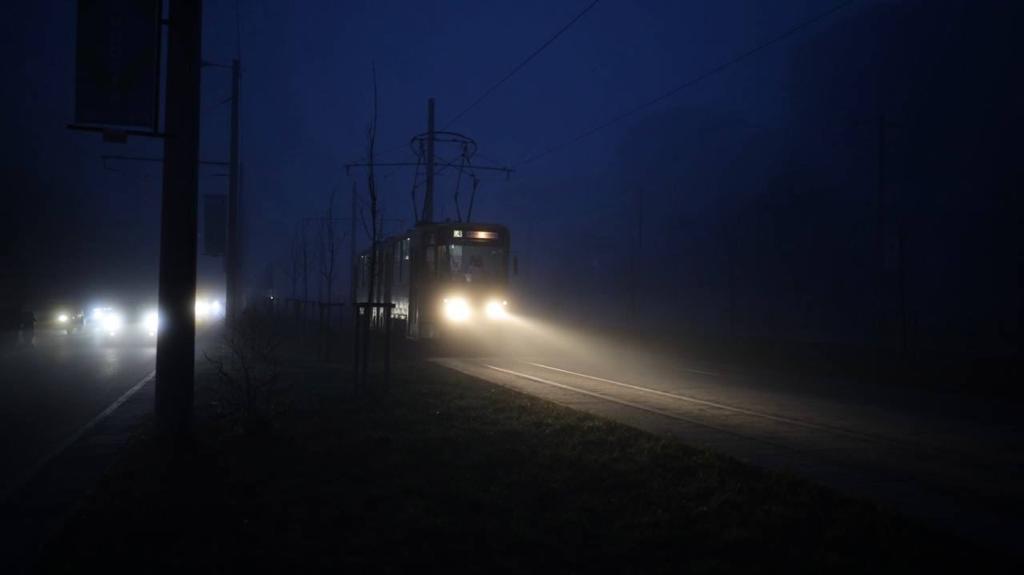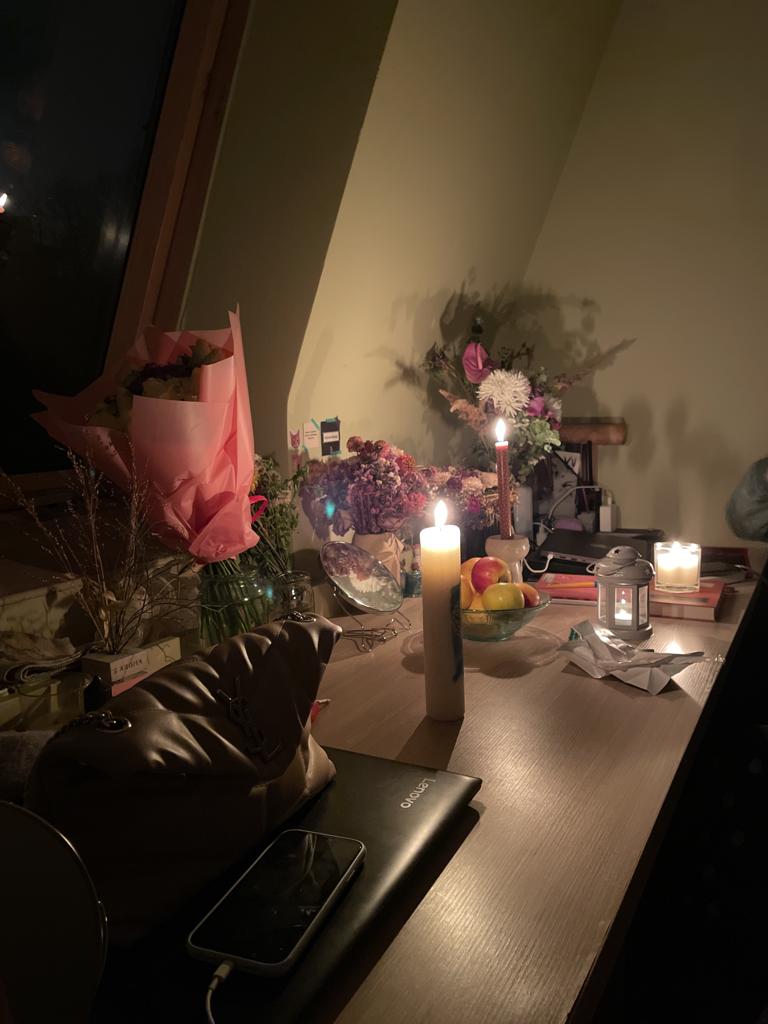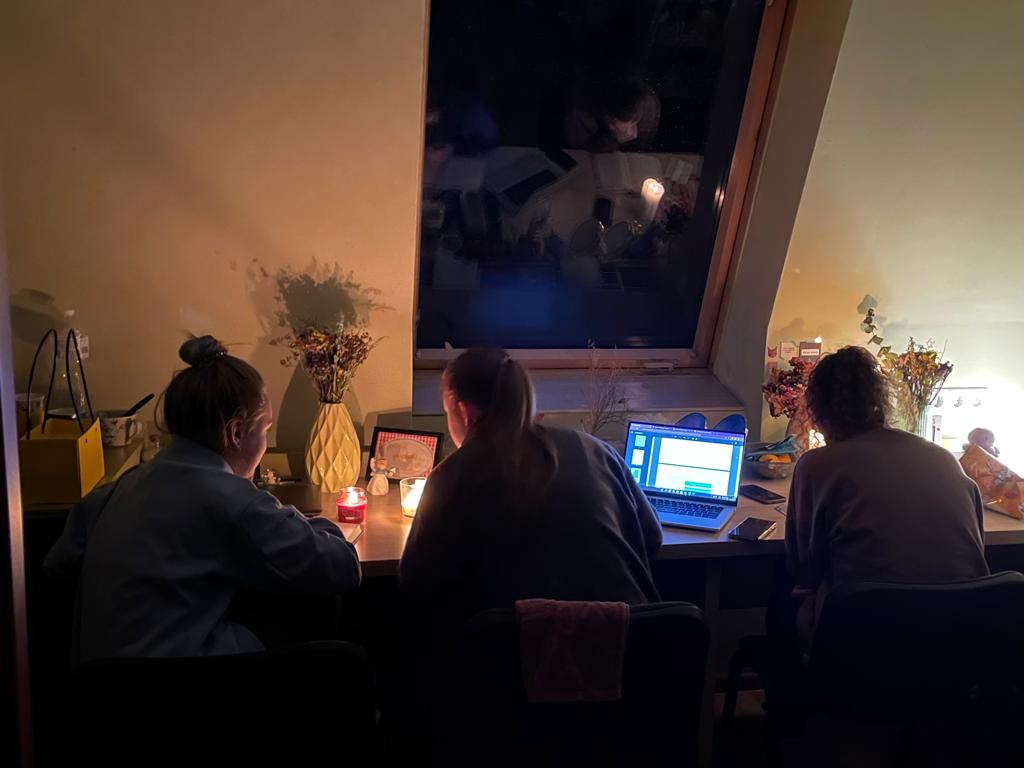“It’s the Russians’ strategy: to make sure that this war is felt by everyone.” Olena is a young Ukrainian woman, head of the Kiev-based Anti-Corruption Center that, although often traveling, has been in the Ukrainian capital during some of the most intense missile attacks that have hit the heart of the country; the war waged by Putin is a war on all fronts, including energy, so that “anyone can feel the suffering”.
According to this logic, Western regions are the most affected “simply because they are furthest from the battlefield”. Massive bombings target power plants, so air raid alarms ring deafeningly throughout the city, cell phone lines go down, and it becomes impossible to get in touch with others or check news updates. Power outages begin, lasting five, six or even seven hours, during which electricity is not necessarily the only one that goes out: when specifically targeted, running water supply and heating are also disrupted. Thus, to provide light in cold and dark houses, candles are lit on window sills and “Ukrainians work miracles”.


Mira is 20 years old and lives in her apartment in Lviv, the western part of Ukraine. She is a student in the language faculty to become an interpreter while working as a tutor to help children and adults struggling with translations. “For students and those who work remotely, the conditions are difficult”, she says over the phone. When work depends on electricity, doing one’s job can become a real challenge “considering that not everyone can afford to buy electric generators to keep at home”. Although students take classes online, sheltered in their apartments, there are many obstacles to be dealt with every day: “Being able to contact professors, work on projects, follow workshops has become extremely complicated. We go to cafés where you can recharge your electronic devices and maybe study to pass an exam”. However, the problems to be faced every day remain many for everyone. Such as the entrepreneurs of small and medium-sized businesses in crisis struggling with the survival of companies tied solely to generators. But the difficulties involve all aspects of life, and even daily activities become a challange when carried out without electricity. Mira tells of her grandparents, like many elderlies throughout the country, today find themselves having to climb long flights of stairs to get to their homes, sometimes returning from the supermarket with heavy groceries, sometimes with cases of water to stock up. Even walking on the streets has become more risky: on the dark streets, where most of the time streetlights are now only ornamental, the number of accidents is rising sharply.
All news to reckon with in a rediscovered normalcy that, however, is not taking root. Mira speaks for all young Ukrainians when she says “we are tired of this”. To the material damage must be added the psychological ones, taking into account the discomfort of a life that follows the daily schedule of electricity cuts. At the very beginning, power plants asked for reduced power consumption in order to have a chance to repair any damage caused by the missiles without overloading the infrastructure, while now they are cutting off the power supply regularly throughout the day. The effect of a life that is becoming harder is reflected in Mira’s words, “Our life is on a schedule. Every day I check the timetable and organize accordingly to know what I can do and when”. Working closely with people, albeit in virtual mode, the burden of this situation for Mira is twofold having to take into account the scheduled cut-offs in Lviv and those in the cities from where her clients connect.
“But the important thing now is that we are alive. In this darkness, the light is in the spirit of Ukrainians”. In the very moments when there is a lack of electricity, Mira and her friends have rediscovered how much feeling connected and being together with others gives them strength. Only at the end of the phone call does she confess that a blackout is in progress as she speaks, and when asked how she will spend the evening in the dark, Mira replies with semplicity: “I will light candles and might read my book for a while. Then I will call my friends who, like me, have been without light”.


Read more on our monthly printed paper “Energy“.

